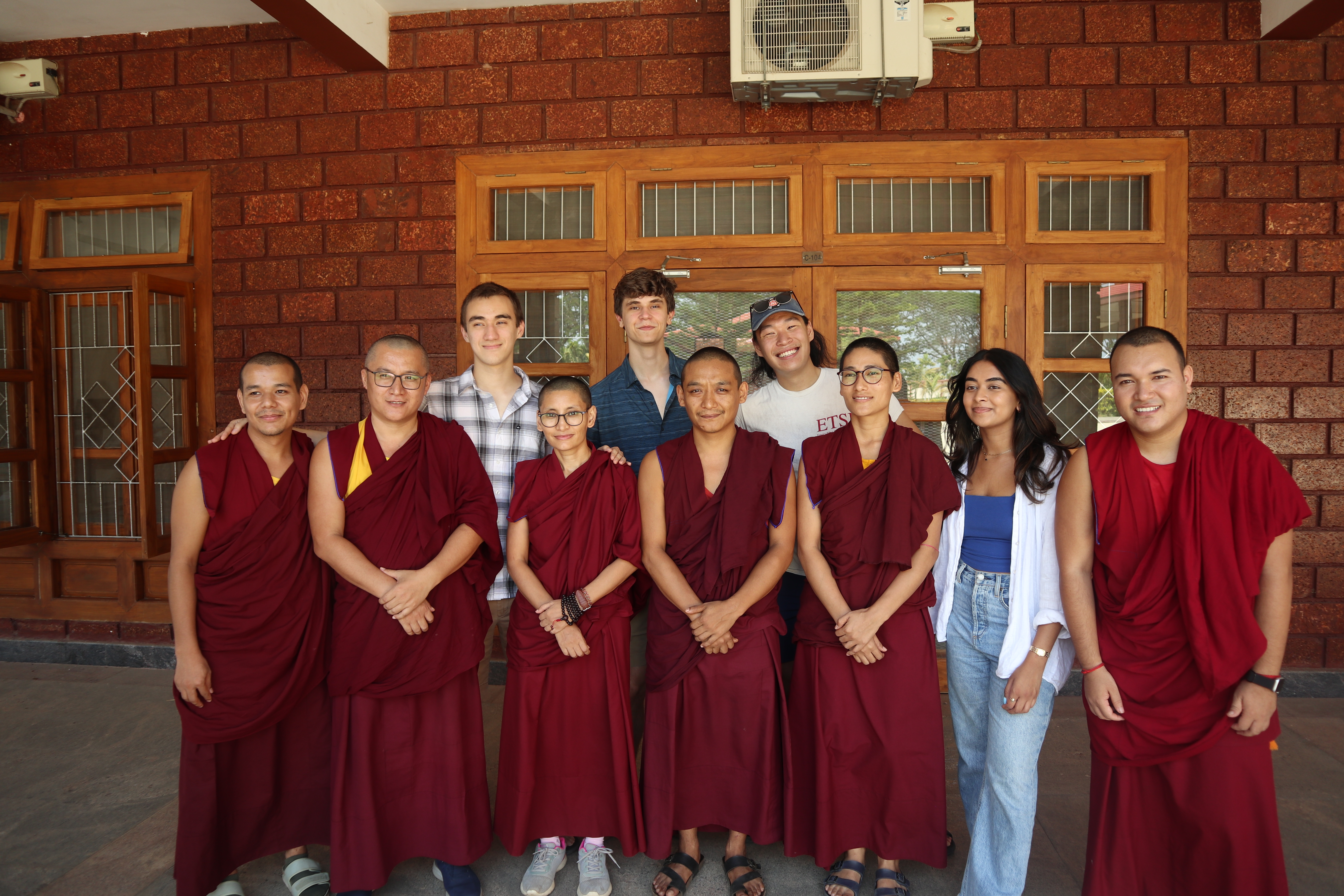July 2023 - Monastic Scholars Touching Lives at Emory
The Emory-Tibet Science Initiative welcomes the 7th Cohort Tenzin Gyatso Science Scholars, who are coming to Emory University this fall to do a two-year residency program. The six monastic scholars—four monks and two nuns—have been selected from monasteries and nunneries participating in the ETSI science education program to study math, English, and introductory college-level sciences.
The TGSS Program, which started in 2010 with significant support from Emory University and the Dalai Lama Trust, aims to produce indigenous monastic science teachers by providing college-level science education at a major academic institution in the US. Past graduates of this program have served in various roles—as science instructors, translators, science center directors, and science coordinators—thus making significant contributions to ensure the long-term sustainability of science education within Tibetan monasteries and nunneries in India.
Like the previous cohorts, this new group will face challenges as they delve deeper into the science courses. Not only are these subjects relatively new to them, but they will also be navigating a new education system and using new pedagogy methods. However, that's how we grow—facing challenges, discovering our strengths, and learning to rise above them. Their training in reflective and contemplative practices, such as attention, memorization, and analytical thinking, will surely come in handy.
ETSI has many support systems in place to help the TGSSs. One of them is the ETSI Peer Mentoring Group—a student-led academic support system that started informally at the beginning of this program but got formalized in 2020.
Emory student Sayli Sonsurkar, a rising senior double majoring in Biology and Interdisciplinary Studies and the new Program Director will lead this year's group of Emory students as they act as liaisons for the 7th Cohort students, making the monastics' transitions into American life as comfortable as possible and help them integrate into the curriculum. As Sayli and other mentors support the monastics, they are themselves touched by these interactions and perhaps change for the better. As Sayli writes: "These [monastic] scholars learn for learning's sake – not for any pre-professional goal or future-minded idea. Working with them has and continues to teach me a lot, but I am perhaps most grateful for them reminding me of my true passion for science, inquiry, and investigation."
The impacts of this relationship go even deeper. "Compassion for oneself and others is something the monastics have taught me a lot about. I am an EMT with Emory EMS and would often come to sessions in uniform. The scholars, as expected, would be curious and ask questions about my experiences and patients. From those conversations, I developed the idea for the Honors Thesis I am working on. I am studying how CBCT can help potentially help mitigate EMT burnout and compassion fatigue and help improve conditions for both providers and patients."
Although ETSI brings the monastics to Emory for Western academic learning, especially in sciences, their education has been much more holistic. But more significantly, these scholars are touching many lives at Emory and beyond, fostering relationships, nurturing deeper values, and spreading joy



 ETSI
ETSI